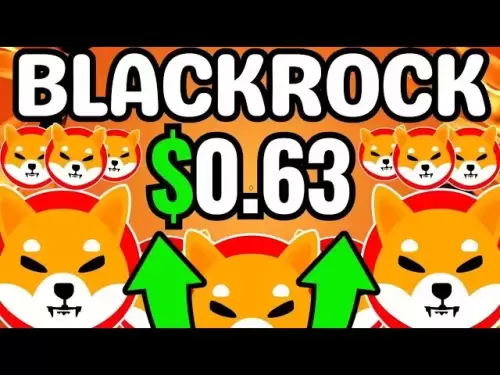-
 Bitcoin
Bitcoin $118000
-0.30% -
 Ethereum
Ethereum $3672
2.06% -
 XRP
XRP $3.433
-1.26% -
 Tether USDt
Tether USDt $1.000
-0.03% -
 BNB
BNB $744.4
1.39% -
 Solana
Solana $178.5
0.43% -
 USDC
USDC $0.9998
-0.01% -
 Dogecoin
Dogecoin $0.2544
1.55% -
 TRON
TRON $0.3197
-1.41% -
 Cardano
Cardano $0.8411
1.25% -
 Hyperliquid
Hyperliquid $45.06
-0.50% -
 Stellar
Stellar $0.4642
-0.67% -
 Sui
Sui $3.872
1.79% -
 Chainlink
Chainlink $18.76
2.98% -
 Hedera
Hedera $0.2686
1.16% -
 Avalanche
Avalanche $24.70
3.92% -
 Bitcoin Cash
Bitcoin Cash $522.9
1.41% -
 Shiba Inu
Shiba Inu $0.00001516
0.13% -
 Litecoin
Litecoin $112.3
9.31% -
 UNUS SED LEO
UNUS SED LEO $8.999
0.24% -
 Toncoin
Toncoin $3.204
0.01% -
 Polkadot
Polkadot $4.418
3.06% -
 Uniswap
Uniswap $10.53
3.16% -
 Monero
Monero $327.6
0.76% -
 Ethena USDe
Ethena USDe $1.001
-0.02% -
 Bitget Token
Bitget Token $4.987
1.52% -
 Pepe
Pepe $0.00001371
2.34% -
 Dai
Dai $1.000
0.00% -
 Aave
Aave $323.3
0.40% -
 Bittensor
Bittensor $416.9
0.79%
How to calculate the maintenance margin of Binance contracts? How to trigger a margin call?
To avoid margin calls on Binance, use lower leverage, set stop-loss orders, and maintain a buffer above the maintenance margin in your account equity.
May 04, 2025 at 07:35 pm
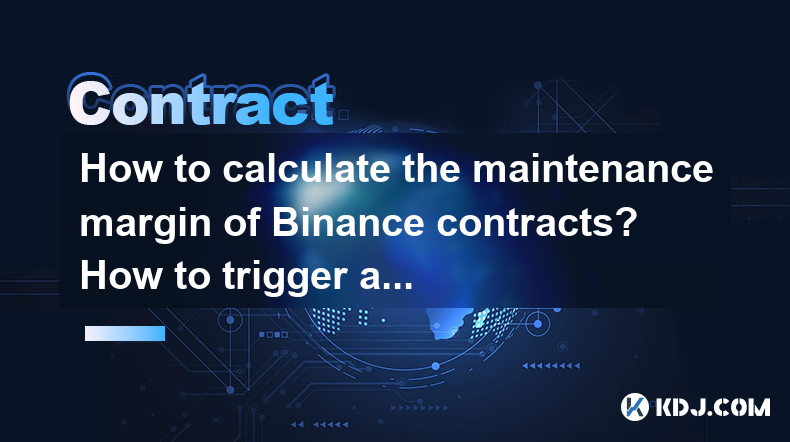
Understanding the Maintenance Margin on Binance Contracts
When trading futures and other derivative products on Binance, one of the critical aspects to understand is the maintenance margin. The maintenance margin is the minimum amount of equity that must be maintained in a trading account to keep a position open. If the account balance falls below this level, it triggers a margin call, which can lead to the liquidation of the position.
How to Calculate the Maintenance Margin
Calculating the maintenance margin on Binance involves understanding several key terms and formulas. The maintenance margin is typically a percentage of the notional value of the contract. Here's how you can calculate it:
Notional Value: This is the total value of the position. For example, if you are trading a futures contract with a price of $50,000 and you have a position size of 1 contract, the notional value is $50,000.
Maintenance Margin Rate: This is the percentage set by Binance for each type of contract. For instance, if the maintenance margin rate for a specific contract is 0.5%, you would calculate the maintenance margin as follows:
Maintenance Margin = Notional Value x Maintenance Margin Rate
Using the example above, if the notional value is $50,000 and the maintenance margin rate is 0.5%, the maintenance margin would be:
$50,000 x 0.005 = $250
This means that your account equity must stay above $250 to avoid a margin call on this position.
Factors Affecting Maintenance Margin
Several factors can affect the maintenance margin, including:
Volatility: Higher volatility in the underlying asset can lead to higher maintenance margin requirements to account for the increased risk.
Leverage: The amount of leverage used can affect the maintenance margin. Higher leverage means a smaller margin requirement but also increases the risk of a margin call.
Contract Specifications: Different contracts on Binance may have different maintenance margin rates, so it's essential to check the specifics for each contract you trade.
How to Trigger a Margin Call
A margin call is triggered when the account equity falls below the maintenance margin. Here's how it works:
Account Equity: This is the total value of the account, including unrealized profits and losses. It's calculated as:
Account Equity = Account Balance + Unrealized P&L
Margin Call: If the account equity drops below the maintenance margin, a margin call is triggered. Binance will notify you and give you a chance to deposit more funds to meet the margin requirement.
Liquidation: If you do not meet the margin call by depositing additional funds, Binance will automatically liquidate your position to prevent further losses. The liquidation price is calculated as:
Liquidation Price = Entry Price - (Maintenance Margin / (Leverage x Contract Size))
For example, if you entered a position at $50,000 with a leverage of 10x, a contract size of 1, and a maintenance margin of $250, the liquidation price would be:
$50,000 - ($250 / (10 x 1)) = $49,975
Practical Example of Calculating Maintenance Margin and Triggering a Margin Call
Let's walk through a practical example to understand how to calculate the maintenance margin and trigger a margin call on Binance:
Step 1: Determine the Notional Value
Suppose you want to trade a Bitcoin futures contract with a current price of $30,000 and a position size of 1 contract. The notional value would be:
$30,000 x 1 = $30,000
Step 2: Find the Maintenance Margin Rate
Assume the maintenance margin rate for this contract is 0.4%. The maintenance margin would be:
$30,000 x 0.004 = $120
Step 3: Calculate the Account Equity
Suppose your account balance is $500, and you have unrealized losses of $100. Your account equity would be:
$500 - $100 = $400
Step 4: Check for Margin Call
Since your account equity ($400) is above the maintenance margin ($120), no margin call is triggered. However, if your unrealized losses increase to $400, your account equity would drop to:
$500 - $400 = $100
Now, since your account equity ($100) is below the maintenance margin ($120), a margin call would be triggered.
Step 5: Respond to Margin Call
You can either deposit more funds to bring your account equity above $120 or face liquidation. If you deposit $50, your new account equity would be:
$100 + $50 = $150
This would resolve the margin call since $150 is above the maintenance margin of $120.
Monitoring Your Positions
To effectively manage your positions and avoid margin calls, it's crucial to monitor your account equity and the market conditions closely. Here are some tips:
Use Stop-Loss Orders: Setting stop-loss orders can help limit your losses and prevent your account equity from falling below the maintenance margin.
Regularly Check Your Positions: Keep an eye on your open positions and the market movements to anticipate potential margin calls.
Adjust Leverage: If you find that your positions are frequently triggering margin calls, consider reducing your leverage to increase your margin buffer.
Frequently Asked Questions
Q1: Can I change the maintenance margin rate on Binance?
A1: No, the maintenance margin rate is set by Binance for each contract and cannot be changed by individual traders. You must adhere to the rates specified by the platform.
Q2: What happens if I miss a margin call on Binance?
A2: If you miss a margin call and do not deposit additional funds, Binance will automatically liquidate your position to prevent further losses. This liquidation is done at the market price, which may result in a loss.
Q3: How can I avoid margin calls on Binance?
A3: To avoid margin calls, you can take several steps, including using lower leverage, setting stop-loss orders, regularly monitoring your positions, and maintaining a buffer above the maintenance margin in your account equity.
Q4: Does Binance charge any fees for margin calls or liquidations?
A4: Binance does not charge a specific fee for margin calls or liquidations. However, you may incur trading fees when your position is liquidated, depending on the type of contract and the trading volume.
Disclaimer:info@kdj.com
The information provided is not trading advice. kdj.com does not assume any responsibility for any investments made based on the information provided in this article. Cryptocurrencies are highly volatile and it is highly recommended that you invest with caution after thorough research!
If you believe that the content used on this website infringes your copyright, please contact us immediately (info@kdj.com) and we will delete it promptly.
- Shanghai Court Tackles Illegal Tether Transactions: A Wake-Up Call for Crypto
- 2025-07-20 11:50:12
- Robinhood, Crypto, and Industry Reshaping: A New Era Dawns
- 2025-07-20 11:30:13
- Crypto, Altcoins, and Genius Clarity: Decoding the 2025 Bull Run
- 2025-07-20 10:50:12
- DOGE's Double Bottom: Is a $0.42 Target Really in Sight?
- 2025-07-20 10:30:12
- Cryptos Surge: Decoding Market Gains & Top Performing Assets
- 2025-07-20 10:30:12
- Shiba Inu, Market Cap, and Troller Cat: A Meme Coin Mashup for the Ages
- 2025-07-20 10:50:12
Related knowledge
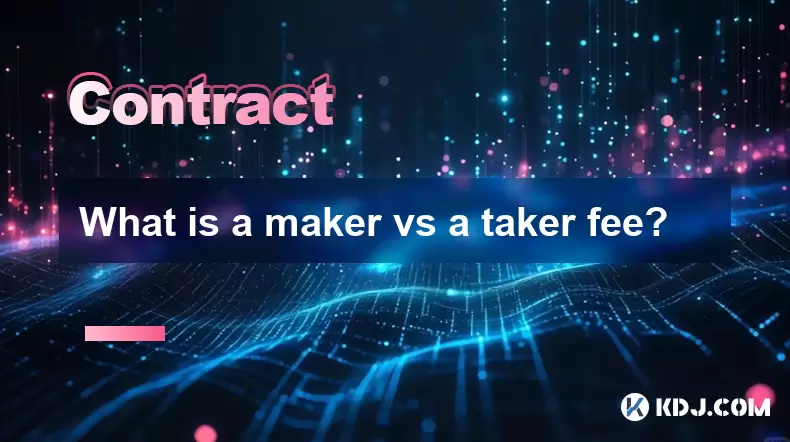
What is a maker vs a taker fee?
Jul 19,2025 at 01:14am
Understanding the Basics of Cryptocurrency Exchange FeesIn the world of cryptocurrency trading, maker vs taker fees are a fundamental concept that eve...

How to analyze Bitcoin futures data from CME?
Jul 19,2025 at 05:22pm
Understanding Bitcoin Futures on CMEBitcoin futures on the CME Group (Chicago Mercantile Exchange) represent a regulated financial instrument that all...
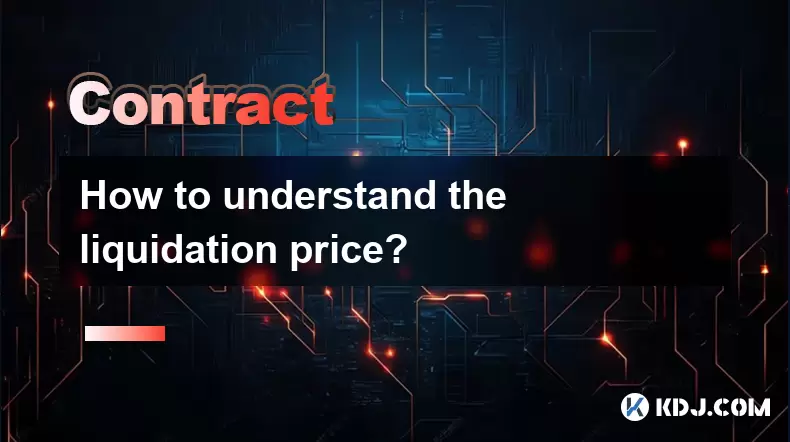
How to understand the liquidation price?
Jul 19,2025 at 10:00pm
What Is a Liquidation Price in Cryptocurrency Trading?In the realm of cryptocurrency futures and margin trading, the liquidation price refers to the s...
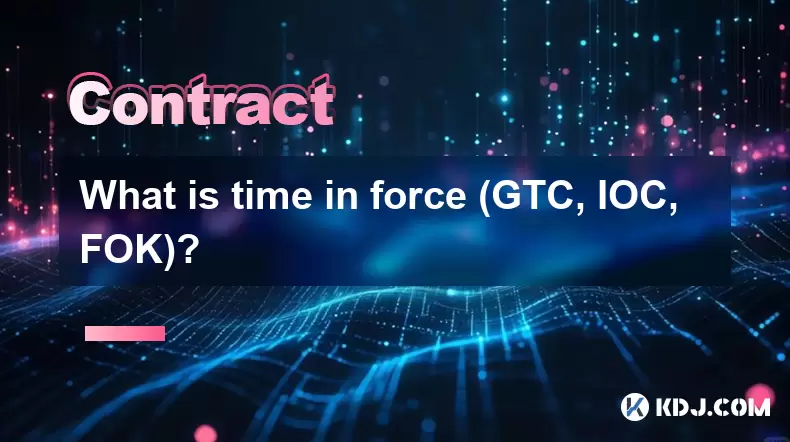
What is time in force (GTC, IOC, FOK)?
Jul 19,2025 at 08:57am
Understanding Time in Force in Cryptocurrency TradingIn the world of cryptocurrency trading, the Time in Force (TIF) is a crucial parameter that deter...
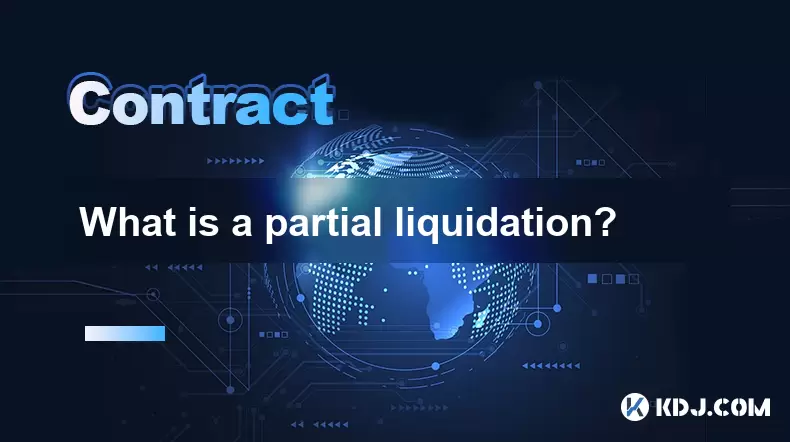
What is a partial liquidation?
Jul 19,2025 at 01:49am
Understanding the Basics of Partial LiquidationIn the world of cryptocurrency trading, especially within leveraged positions, partial liquidation refe...

How to find good entry and exit points for Bitcoin futures?
Jul 19,2025 at 05:14pm
Understanding Bitcoin Futures and Their Unique CharacteristicsBitcoin futures are derivative contracts that allow traders to speculate on the future p...

What is a maker vs a taker fee?
Jul 19,2025 at 01:14am
Understanding the Basics of Cryptocurrency Exchange FeesIn the world of cryptocurrency trading, maker vs taker fees are a fundamental concept that eve...

How to analyze Bitcoin futures data from CME?
Jul 19,2025 at 05:22pm
Understanding Bitcoin Futures on CMEBitcoin futures on the CME Group (Chicago Mercantile Exchange) represent a regulated financial instrument that all...

How to understand the liquidation price?
Jul 19,2025 at 10:00pm
What Is a Liquidation Price in Cryptocurrency Trading?In the realm of cryptocurrency futures and margin trading, the liquidation price refers to the s...

What is time in force (GTC, IOC, FOK)?
Jul 19,2025 at 08:57am
Understanding Time in Force in Cryptocurrency TradingIn the world of cryptocurrency trading, the Time in Force (TIF) is a crucial parameter that deter...

What is a partial liquidation?
Jul 19,2025 at 01:49am
Understanding the Basics of Partial LiquidationIn the world of cryptocurrency trading, especially within leveraged positions, partial liquidation refe...

How to find good entry and exit points for Bitcoin futures?
Jul 19,2025 at 05:14pm
Understanding Bitcoin Futures and Their Unique CharacteristicsBitcoin futures are derivative contracts that allow traders to speculate on the future p...
See all articles





















